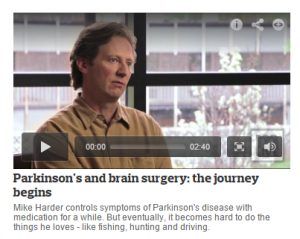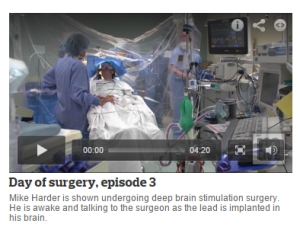
Susan Woolner of Mercy Health Hauenstein Neurosciences joins the Get Social Health podcast to talk about telling authentic patient stories. It’s not as simple as it sounds. Finding the core of the story and telling it in an empathetic way that is respectful to the patient is a primary goal for Susan. At any given time she has 6 patient stories in development from getting patient questions to working with the team of medical experts to vet out information.
One of the remarkable stories that the team at Mercy Health produced was a four-part program on DBS, Deep Brain Stimulation, featuring patient Michael Harder. Michael was a United States veteran who served in the Middle East and was diagnosed with Parkinson’s at age 35. His patient story took over a year to produce. With six more patient stories to share, we look forward to hearing them all. Catch our interview below or drop in at the time stamps below.
 00:00 Introduction
00:00 Introduction
00:39 Social Media Summit Strategic Project
01:16 How to engage experts
02:04 How to share medical expertise with lay-persons
02:50 Walt Disney
06:38 Listen to what the patients are saying or asking
06:38 Stories from patients and Physicians?
07:45 Not everyone is a good storyteller
10:07 Neurogenerative diseases are different for everyone
10:44 ow do you plan your story process
12:45 The Michael Harder Story – DBS- Deep Brain Stimulation for Parkinson’s
 18:05 Surgeon narrates the process
18:05 Surgeon narrates the process
19:08 How many stories do you have in the queue?
20:25 Where else are your stories being used?
23:00 Social media was not the primary goal
24:40 Collegial medical communities, MS, Parksinson’s, Stroke
28:00 What Do you do?
31:00 Susan’s personal Twitter case study
37:00 #ALS and observations on the #IceBucketChallenge
41:15 Social Media Tip: Dr. Bryan Vartabedian – Find a social media mentor
Susan on Twitter
Susan on LinkedIn
The Michael Harder Story: Part 1, Part 2, Part 3, Part 4
Visit our resources page for more valuable (and free!) resources on social media and digital health.
